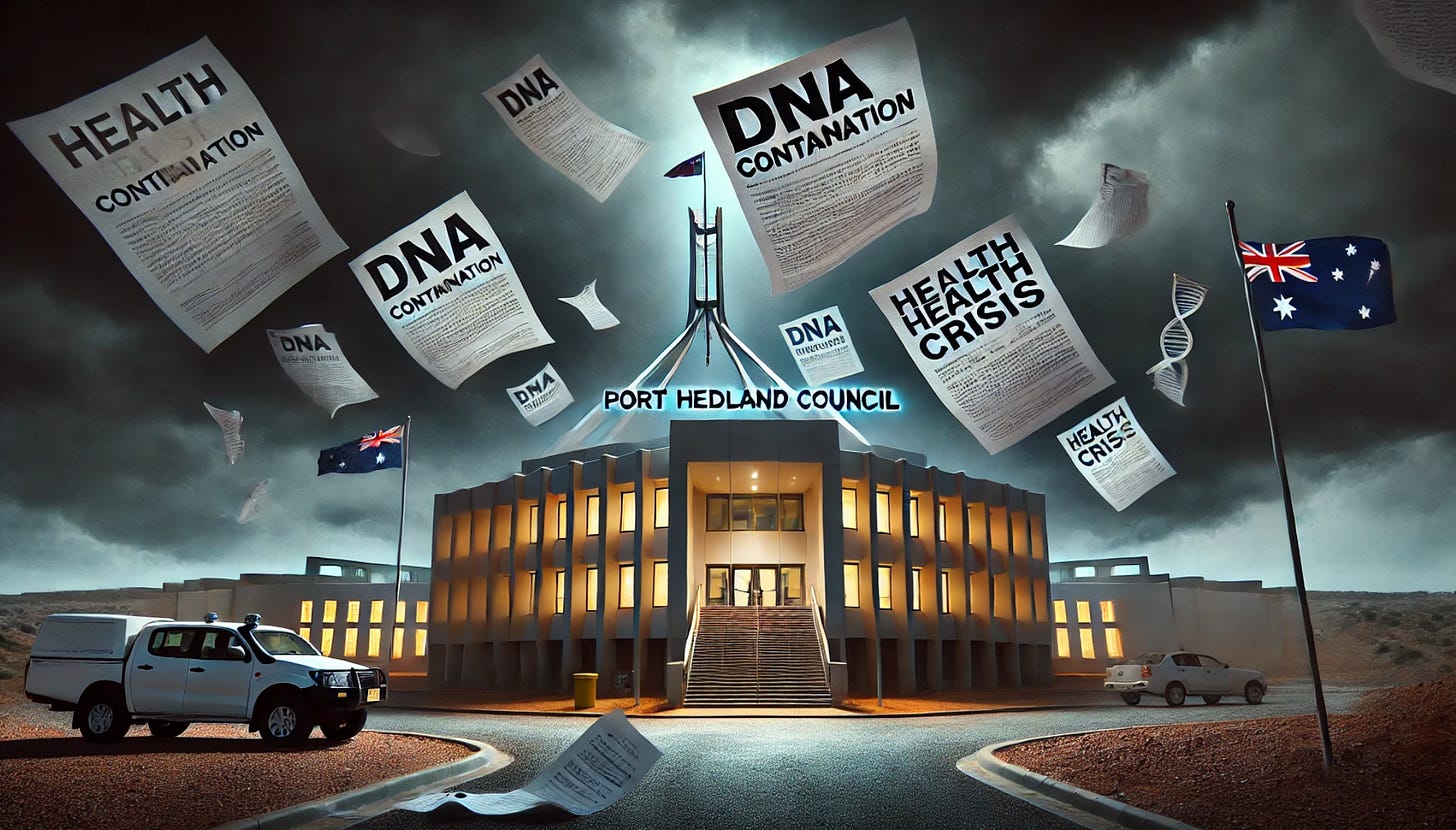BREAKING NEWS: DNA Contamination Exposé—Port Hedland Council Pushes Canberra to Face the Truth
Port Hedland Council challenges Canberra's silence on DNA contamination, demanding accountability and urgent action. Tonight’s meeting could force over 500 councils to confront a looming health crisis
In a dramatic turn of events, Port Hedland Council in Western Australia has taken a bold stance, challenging Canberra on a matter of profound national significance—DNA contamination in medical treatments. As the capital’s silence persists, all eyes are on the council’s Special Meeting tonight (11th October), where a hard-hitting motion could shift the trajectory of the debate.
This evening, at 7 pm Perth time, Councillors Adrian McRae and Camilo Blanco will lead a discussion centered around letters from Russell Broadbent MP to the Prime Minister, and a bombshell DNA contamination report by Dr. David Speicher. The agenda aims to break through the political gridlock by initiating a wave of communication across Australia's 537 local councils. If the motion passes, it would compel each council to confront a legal duty of care—potentially pressuring Canberra to acknowledge the mounting concerns.
The ramifications extend beyond Port Hedland. Should the council vote in favor, seven pivotal letters will be dispatched to various government and health officials, including the Prime Minister, the WA Health Minister, and over 5,000 local councilors. Central to this outreach is a letter encouraging councils to share Dr. Speicher’s findings with health practitioners, catalyzing a coordinated response to what many fear could become a national health crisis.
Professor Angus Dalgleish, renowned for his role as the lead co-signatory of a critical science summary on this issue, will deliver a statement at the meeting. His message underscores a dire warning: a surge in aggressive cancers linked to contamination demands immediate action. With the live-streamed meeting drawing national attention, it’s clear that the outcome could have significant implications for health policy across Australia.
As Canberra remains reticent, Port Hedland’s initiative is a reminder of the power of local governance to provoke national reckoning. The question is no longer whether the contamination exists—it’s whether Australia’s leadership will take responsibility before the public outcry becomes too loud to ignore.
My letter to my local Councillors:
Dear [Councillor Name],
I hope this message finds you well. I am writing to you concerning a matter that has recently come to my attention through a friend living in Port Hedland, Western Australia. It appears that the Port Hedland Council is taking a significant stance on an issue that could have profound implications for communities across the country, including ours—namely, DNA contamination in medical treatments.
It is my understanding that the Port Hedland Council is either planning to circulate or has already circulated this information to councils across Australia, including a detailed report by Dr. David Speicher on DNA contamination and associated letters from Russell Broadbent MP. The aim of this effort appears to be to bring this matter to the attention of Australia’s 537 local councils, potentially triggering a legal duty of care for each council to address the findings.
The potential impact of this outreach is considerable. If councils take up this issue, it could place pressure on Canberra to break its silence and address the growing concerns. This is particularly pressing given the report's suggestion of a link between the contamination and a rise in aggressive cancers, as highlighted by Professor Angus Dalgleish’s statement during a recent council meeting in Port Hedland.
Given the potential health implications and the emphasis on a coordinated response, I am keen to understand more about this situation. Specifically, I would appreciate your perspective on the following:
What is your understanding of the DNA contamination issue raised by the Port Hedland Council?
What actions, if any, will our local council take in response to this information?
How will you ensure that our community’s interests and safety are protected in light of these findings?
This matter could have serious consequences for public health, and it is crucial that our local government is actively engaged and informed. I would greatly appreciate your insights and any plans you have to address this pressing concern.
Thank you for your time and attention to this important issue. I look forward to your response.
Kind regards,




